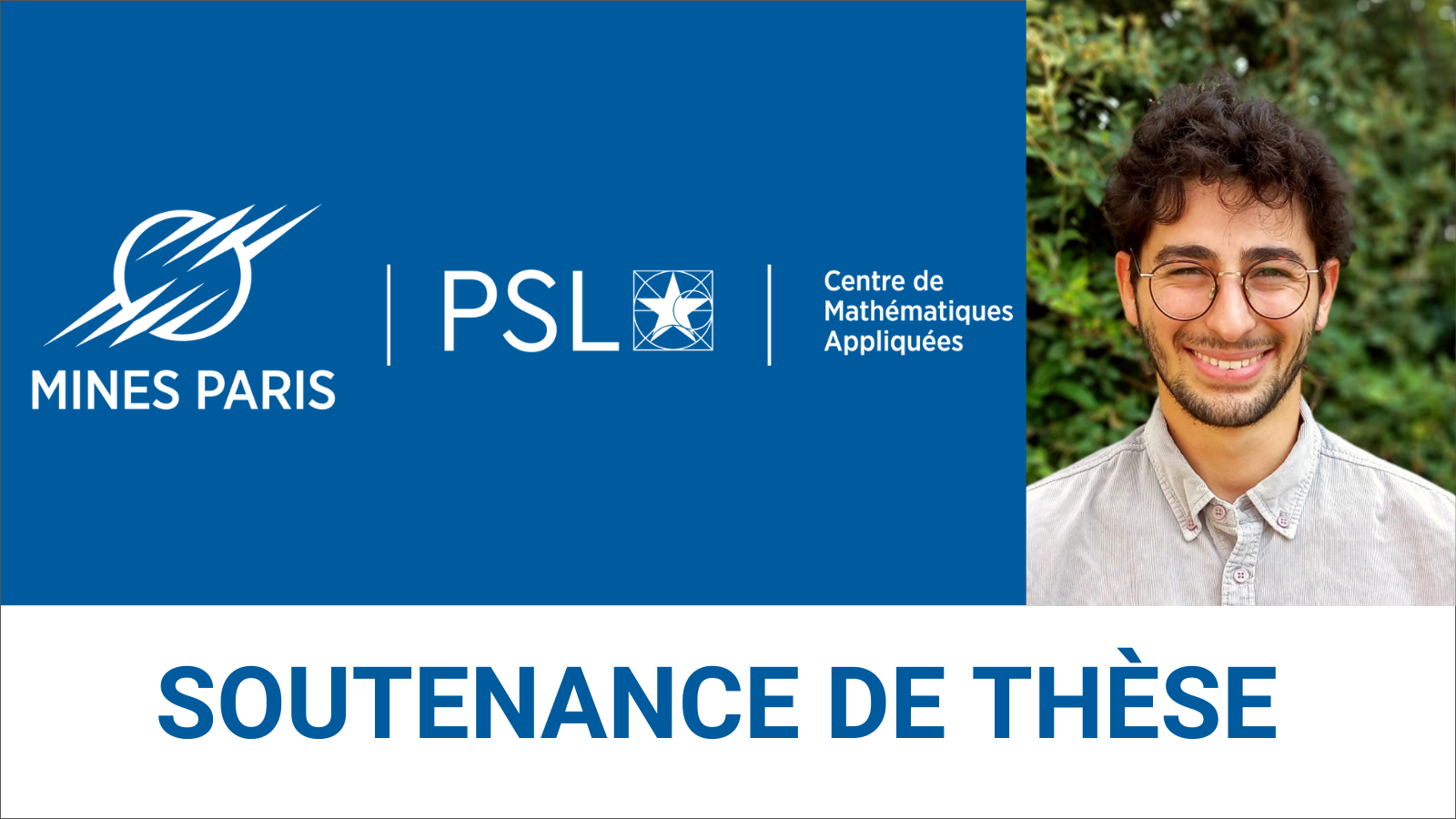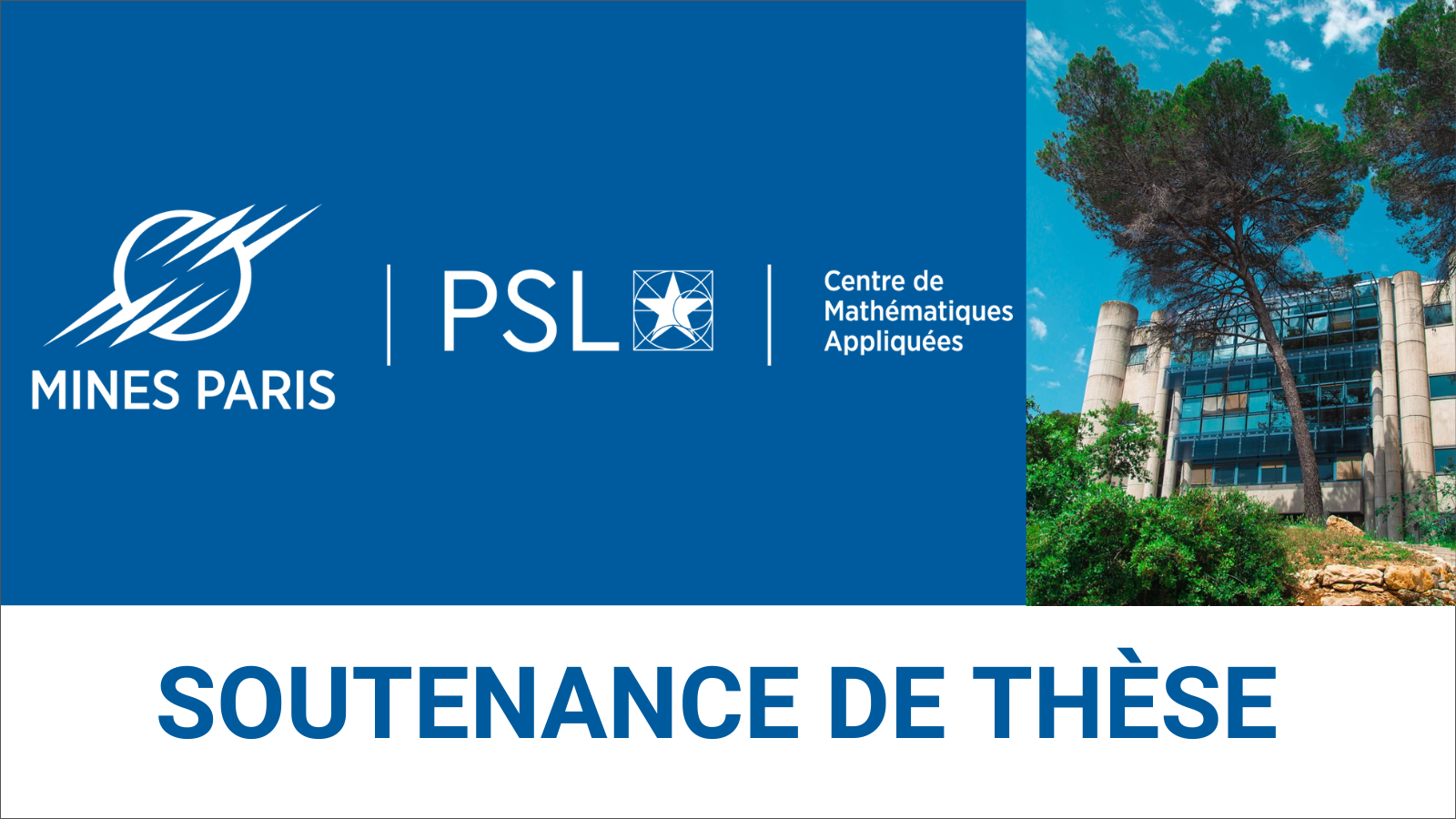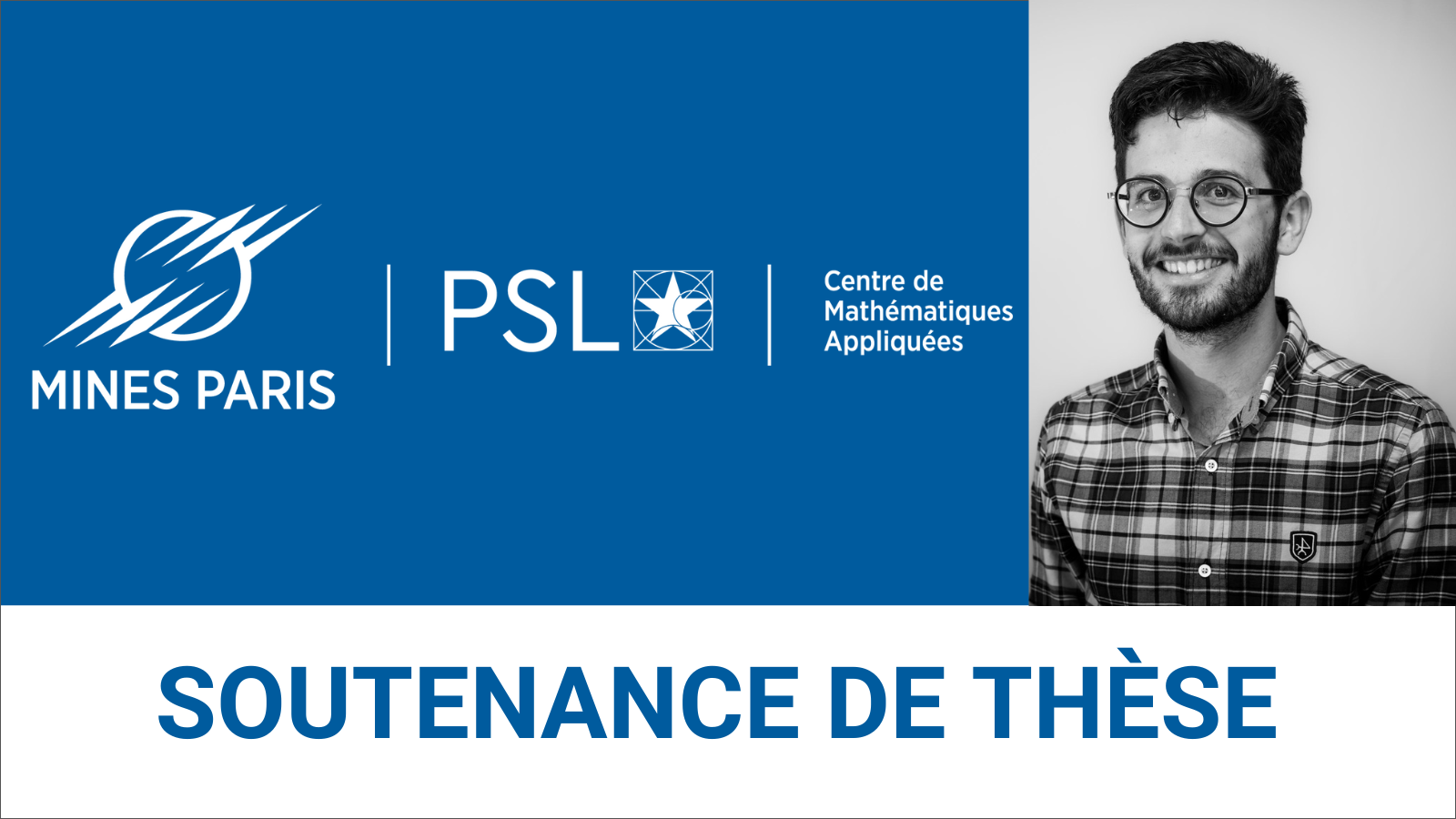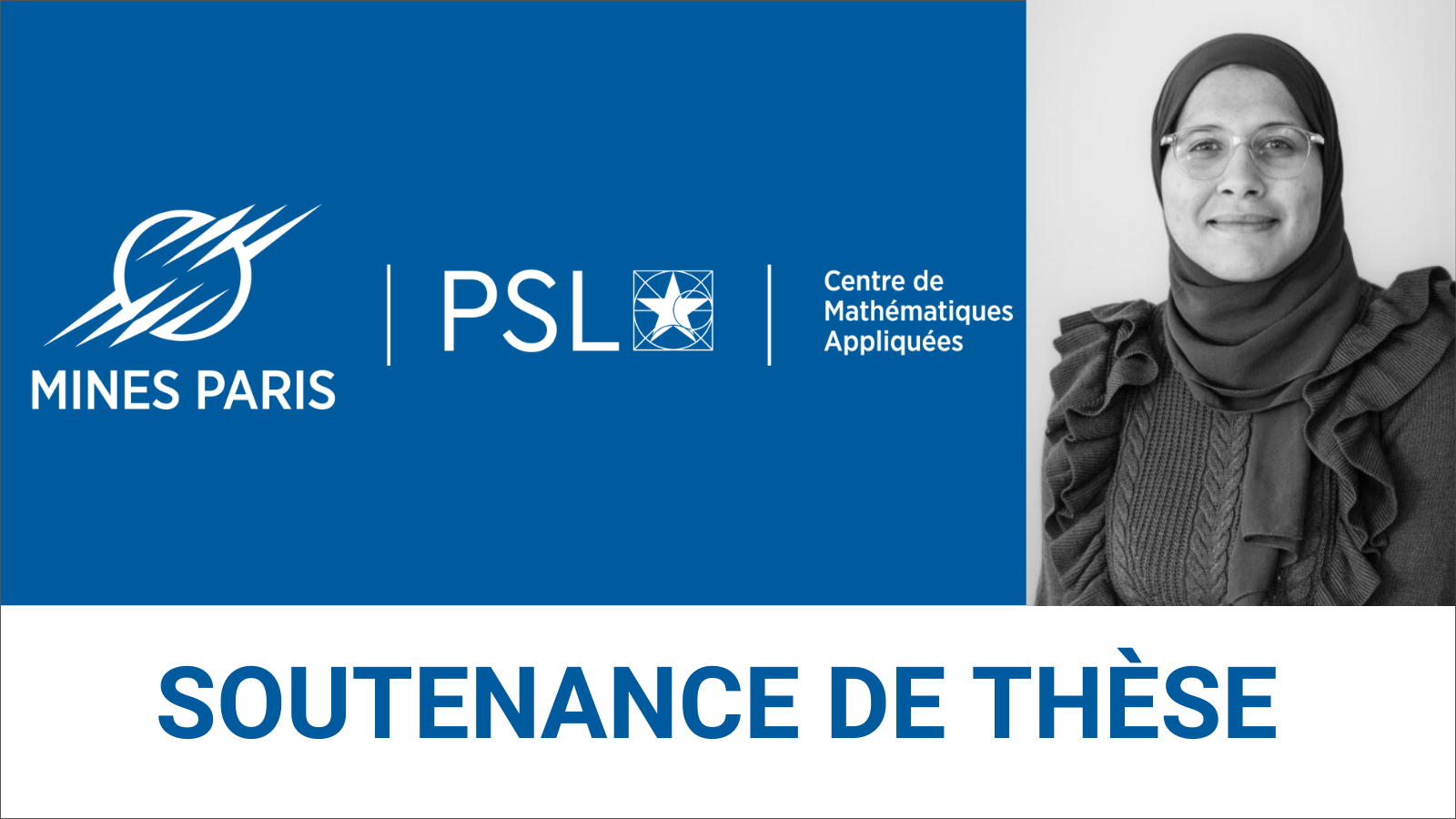
Daniel MIMOUNI soutiendra sa thèse le vendredi 24 octobre 2025 à 14h à Mines Paris – PSL, 60 boulevard Saint-Michel, 75006 Paris.
Sujet : Multistage Stochastic Optimization: From Optimal Transport-Based Scenario Tree Reduction to Robust Optimization
Sous la direction de : Welington DE OLIVEIRA
Thèse en collaboration avec IFP Energies Nouvelles
Résumé : Decision making under uncertainty in multistage stochastic optimization poses a substantial challenge, necessitating a complex trade-off between, on the one hand, the representation of the uncertainties (i.e. the number of scenarios) and, on the other hand, the computational tractability. Scenario reduction methods, pioneered in 2003 by Dupavcova et al., offer a promising outlooks for achieving a satisfactory trade-off. However, the choice of distance metric for reducing scenario trees significantly influences solution quality. While clustering techniques have been prevalent, recent research has turned to Wasserstein-based methods to minimize transport distance between probabilty measures. This work presents a comprehensive investigation of the use of Wasserstein distance for scenario tree reduction in the context of multistage stochastic optimization. The Wasserstein Barycenter (WB) serves as a tool for summarizing sets of probabilities, it appears in a number of disciplines, including applied probability, clustering and image processing. Numerically efficient methods to computing WBs rely on entropic regularization functions, resulting in approximate solutions due to limitations in solver capabilities. In contrast, this research introduces an exact approach based on the Douglas-Rachford splitting method directly applied to the WB linear optimization problem. The proposed solving algorithm achieves a trade-off between the numerical efficiency of regularization-based methods and the precision of exact LP solvers. This thesis also proposes a novel formulation for the unbalanced optimal transport problem. This formulation leads to more flexible real-world applications than literature and the proposed WB method can be easily adapted to tackle unbalanced WB. Another new optimal transport problem is formulated in this thesis: the constraint WB. The motivations is to find WB laying on smaller support or to keep particular properties that can be very useful when performing scenario tree reduction and finds other applications in image processing for example. This work propose exact algorithms to handle this problem. Kovacevic and Pichler developed a reduction algorithm based on nested Wasserstein distance. As we point out in this work, this algorithm consists of computing a significant amount of Wasserstein barycenters. The third contribution of this work is to implement dedicated WB computation algorithms, including the Iterative Bregmann Projection method (IBP) and the newly introduced Method of Averaged Marginals (MAM) in the algorithm proposed by Kovacevic and Pichler 2015 to accelerate its performances. The last contribution of this work is the development of a comprehensive benchmark comparing several optimization frameworksincluding reinforcement learning, distributionally robust optimization, and stochastic programmingfor solving an industrial-scale multistage energy management problem at IFPEN. We integrate these approaches into a unified software pipeline that encompasses all key components developed in this thesis, including the scenario tree reduction algorithm enhanced by optimal transport techniques.
Mots clés : Stochastic optimization, Optimal transport, Scenario tree, Mathematical programming, Wasserstein distance, Robust
-
Alois PICHLER, Professeur, University of Technology, Chemnitz – Rapporteur
-
Franck IUTZELER, Professeur, Institut Mathématique de Toulouse – Rapporteur
-
Michel DE LARA, Professeur, École Nationale des Ponts et Chaussées – Examinateur
-
Delphine BRESCH-PIETRI, Maître-Assistante, Mines Paris – PSL (CAS) – Examinatrice
-
Paul MALISANI, Chercheur, IFPEN – Encadrant de thèse
-
Jiamin ZHU, Chercheurse, IFPEN – Co-encadrante de thèse
-
Welington DE OLIVEIRA, Chargé de Recherche, Mines Paris – PSL (CMA) – Directeur de thèse
La soutenance se tiendra en anglais et sera également retransmise en direct. Pour recevoir le lien de connexion, merci de nous contacter.



